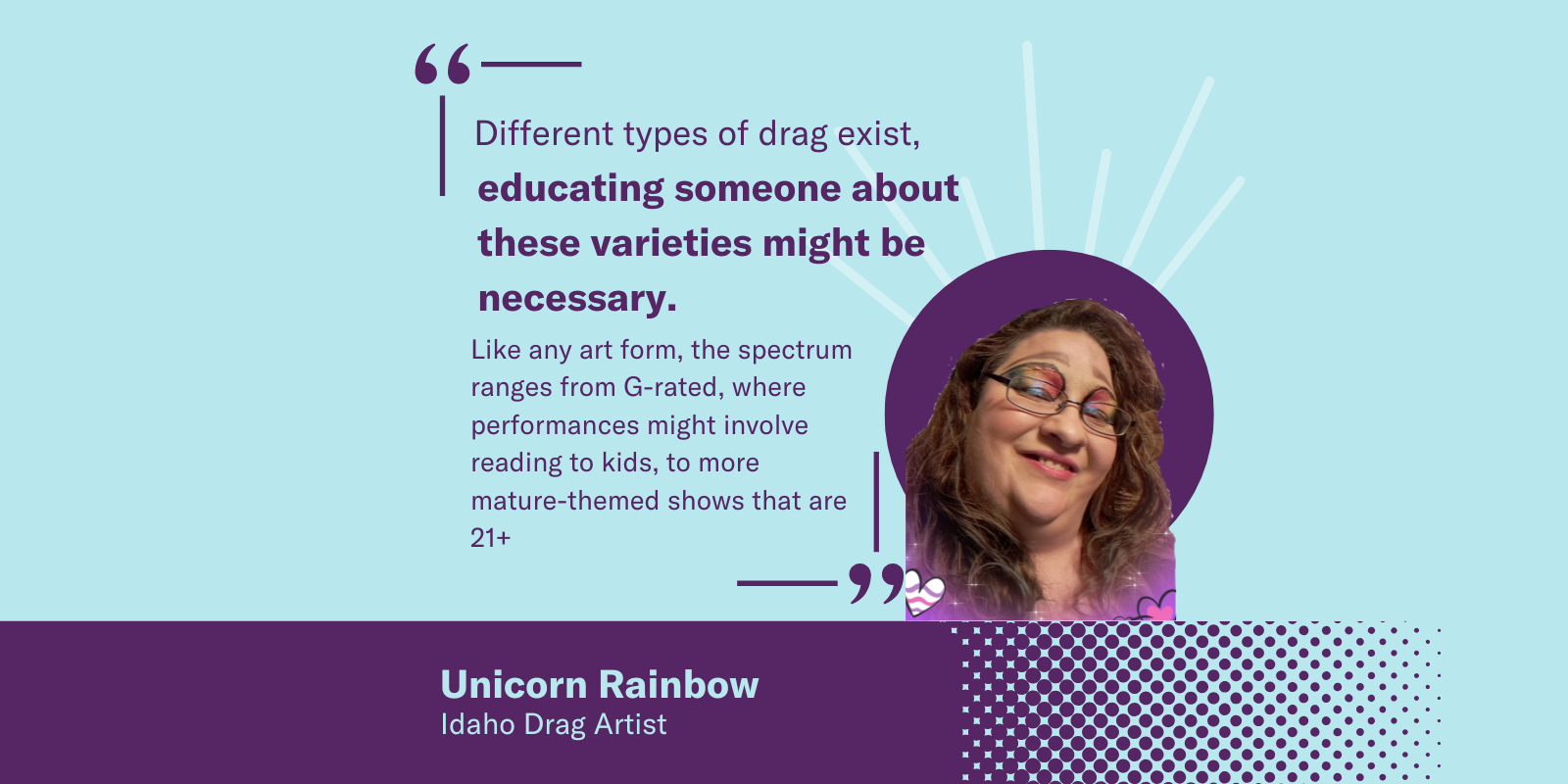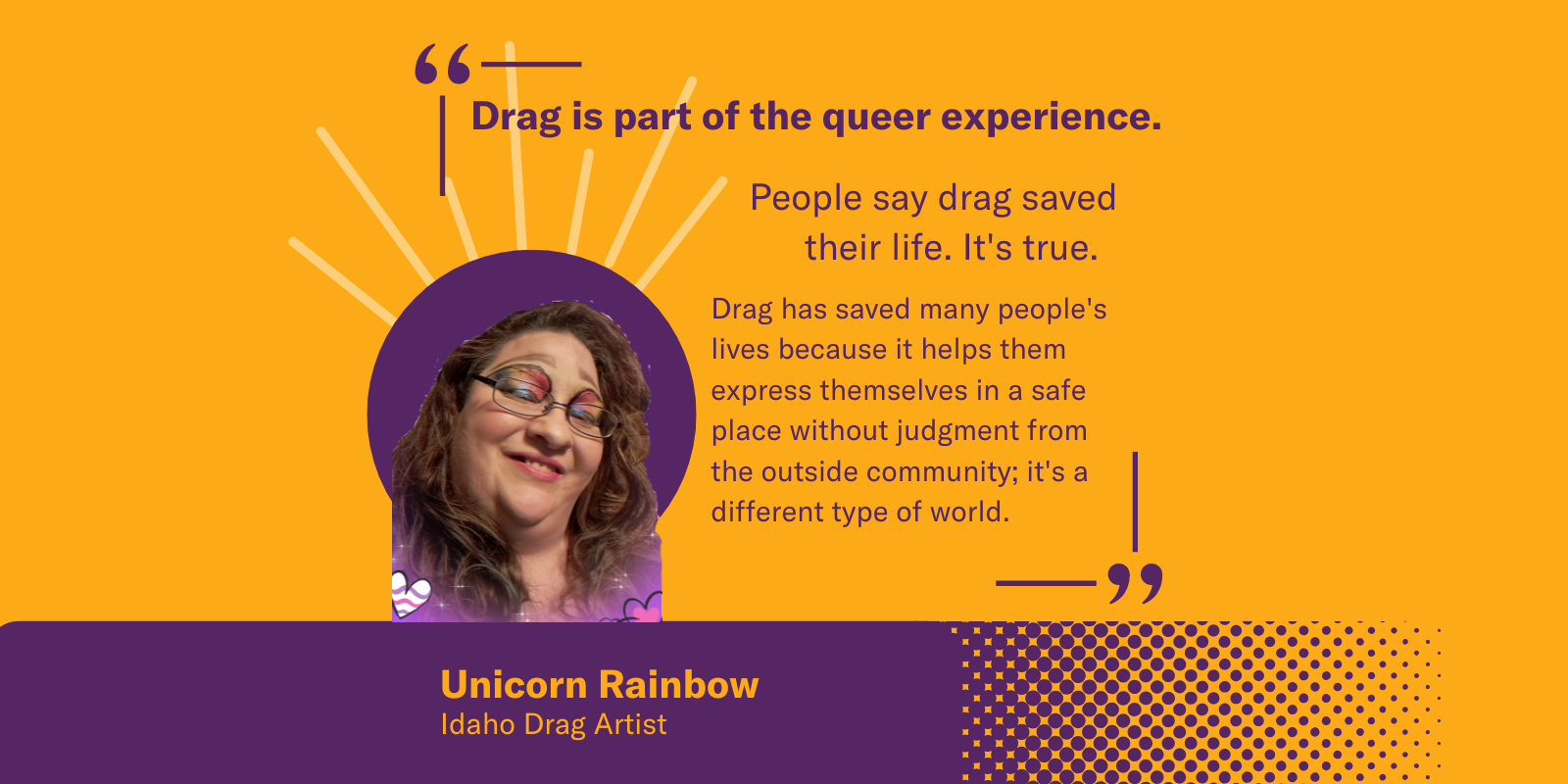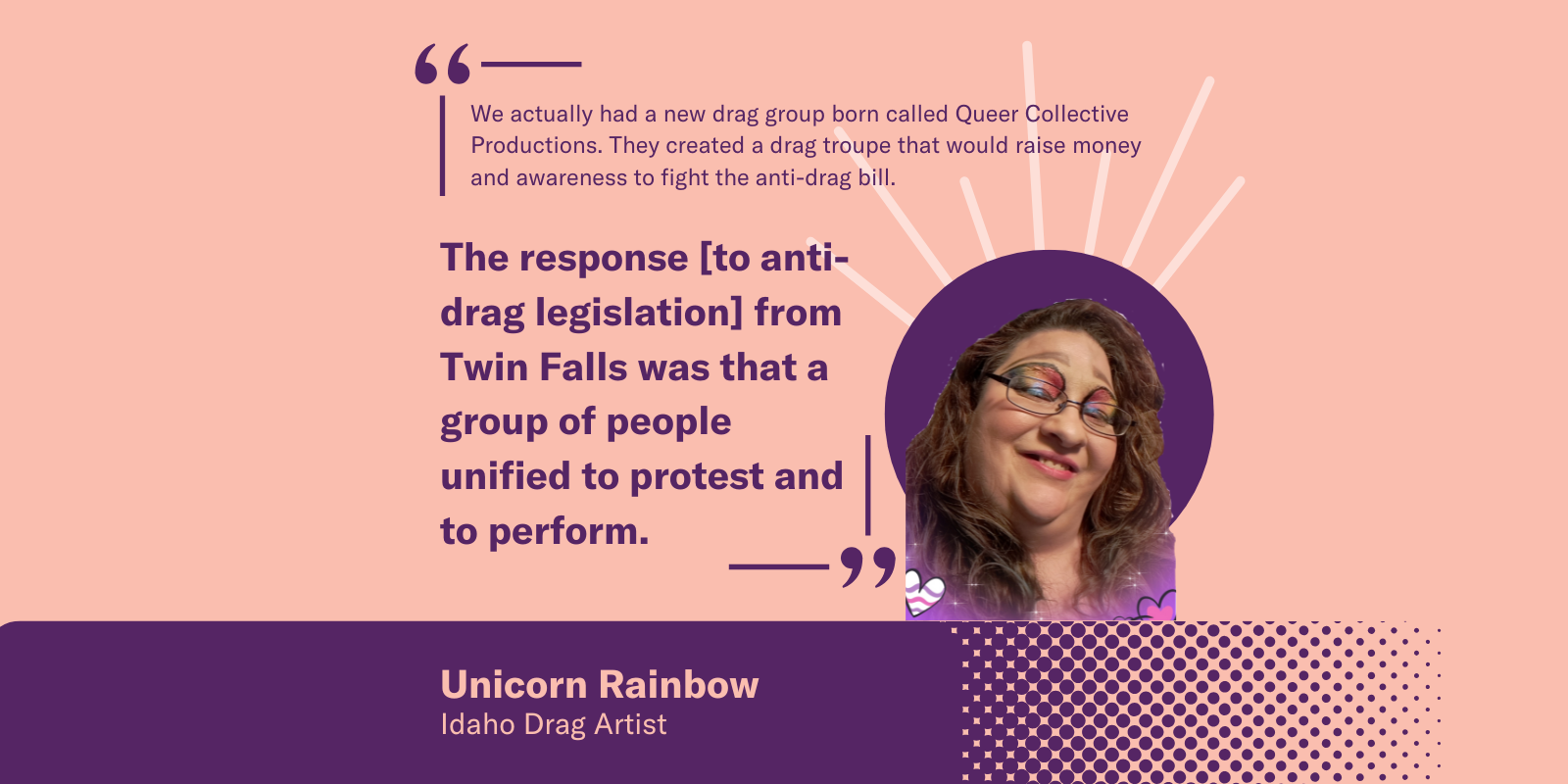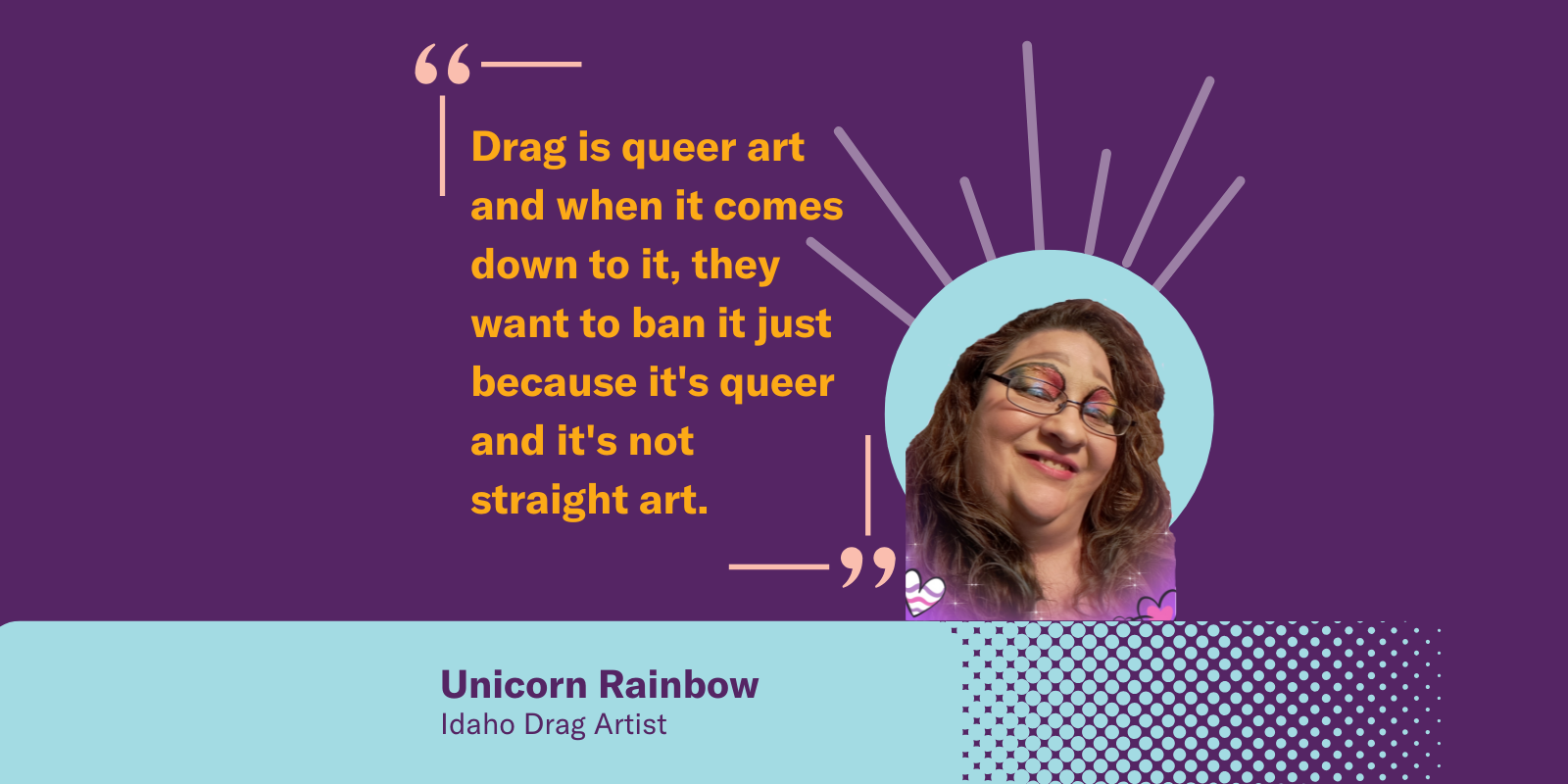Unicorn Rainbow
We center the stories of drag performers across Idaho to celebrate queer joy and advocate for the protection of drag performances as legal art form and first amendment right in Idaho. The stories shared on this page are here to celebrate and advocate to protect the constitutionally guaranteed right to dance, fashion, music, and DRAG!

Unicorn Rainbow is an Idaho-based drag performer. She is a disabled, plus-sized queen who uses drag to communicate that that even if you have shortcomings that you can continue to succeed and grow. We interviewed Unicorn Rainbow and other drag performers from Idaho to get their perspective on why it's important that we protect drag in Idaho.
We center the stories of drag performers across Idaho to celebrate queer joy and advocate for the protection of drag performances as legal art form and first amendment right in Idaho. The stories shared on this page are here to celebrate and advocate to protect the constitutionally guaranteed right to dance, fashion, music, and DRAG!

Unicorn Rainbow is an Idaho-based drag performer. She is a disabled, plus-sized queen who uses drag to communicate that that even if you have shortcomings that you can continue to succeed and grow. We interviewed Unicorn Rainbow and other drag performers from Idaho to get their perspective on why it's important that we protect drag in Idaho.
Protect Drag In Idaho: Unicorn Rainbow
ABOUT THE CENTER STAGE STORY PROJECT
We center the stories of drag performers across Idaho to celebrate queer joy and advocate for the protection of drag performances as legal art form and first amendment right in Idaho. We believe in the value of visibility and the understanding of being seen is a crucial factor in preserving lives. Our intention is for performers to redefine the narrative of drag and expand the public perception of its true essence through their stories and lived experiences. Drag is a form of creative expression like any other and has always been about joy and acceptance. The stories shared on this page are here to celebrate and advocate to protect the constitutionally guaranteed right to dance, fashion, music, and DRAG!
LEARN HOW YOU CAN HELP PROTECT DRAG WITH THE NORTH IDAHO PRIDE ALLIANCE ⮕





